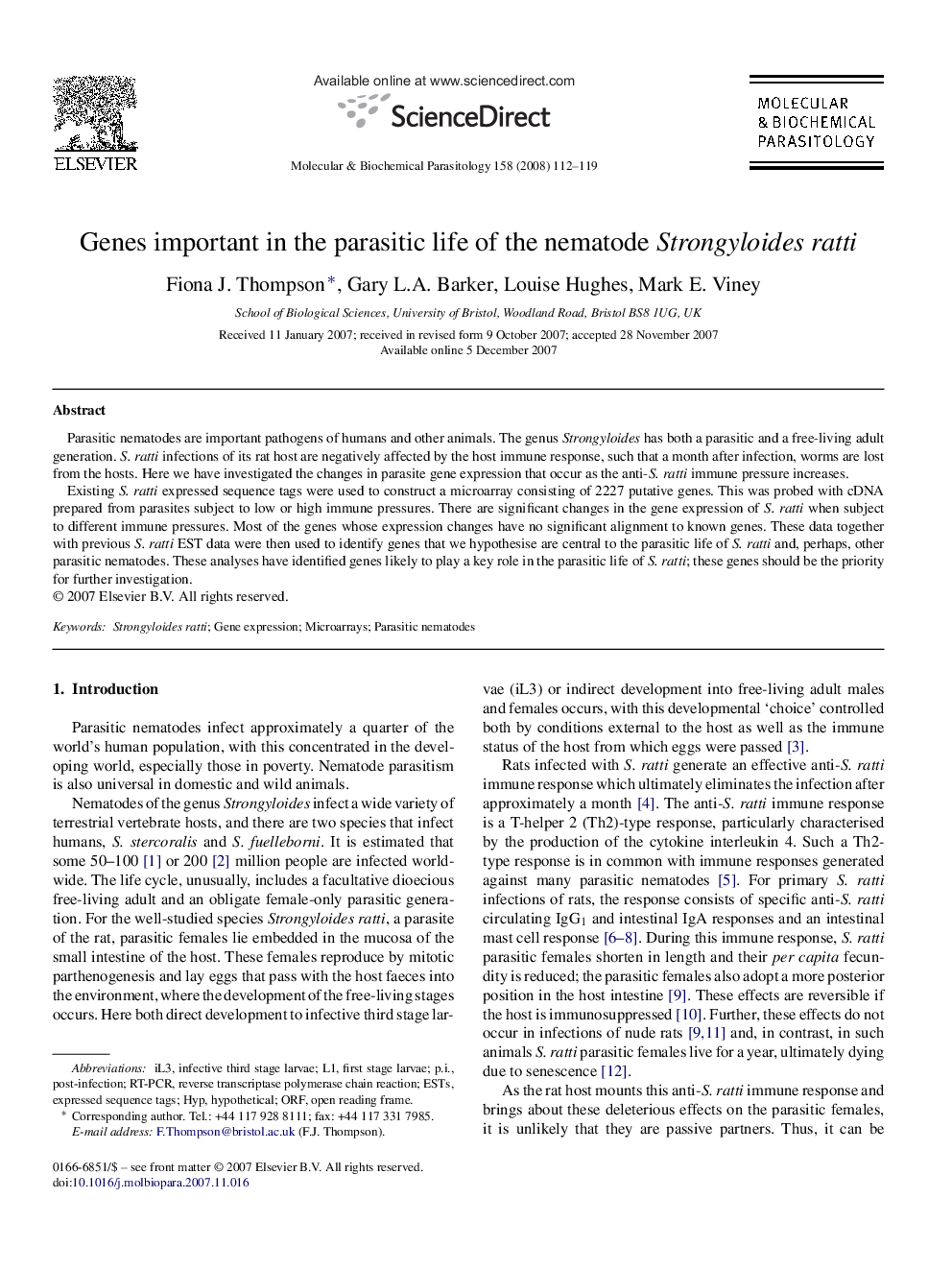| Article ID | Journal | Published Year | Pages | File Type |
|---|---|---|---|---|
| 2830209 | Molecular and Biochemical Parasitology | 2008 | 8 Pages |
Parasitic nematodes are important pathogens of humans and other animals. The genus Strongyloides has both a parasitic and a free-living adult generation. S. ratti infections of its rat host are negatively affected by the host immune response, such that a month after infection, worms are lost from the hosts. Here we have investigated the changes in parasite gene expression that occur as the anti-S. ratti immune pressure increases.Existing S. ratti expressed sequence tags were used to construct a microarray consisting of 2227 putative genes. This was probed with cDNA prepared from parasites subject to low or high immune pressures. There are significant changes in the gene expression of S. ratti when subject to different immune pressures. Most of the genes whose expression changes have no significant alignment to known genes. These data together with previous S. ratti EST data were then used to identify genes that we hypothesise are central to the parasitic life of S. ratti and, perhaps, other parasitic nematodes. These analyses have identified genes likely to play a key role in the parasitic life of S. ratti; these genes should be the priority for further investigation.
